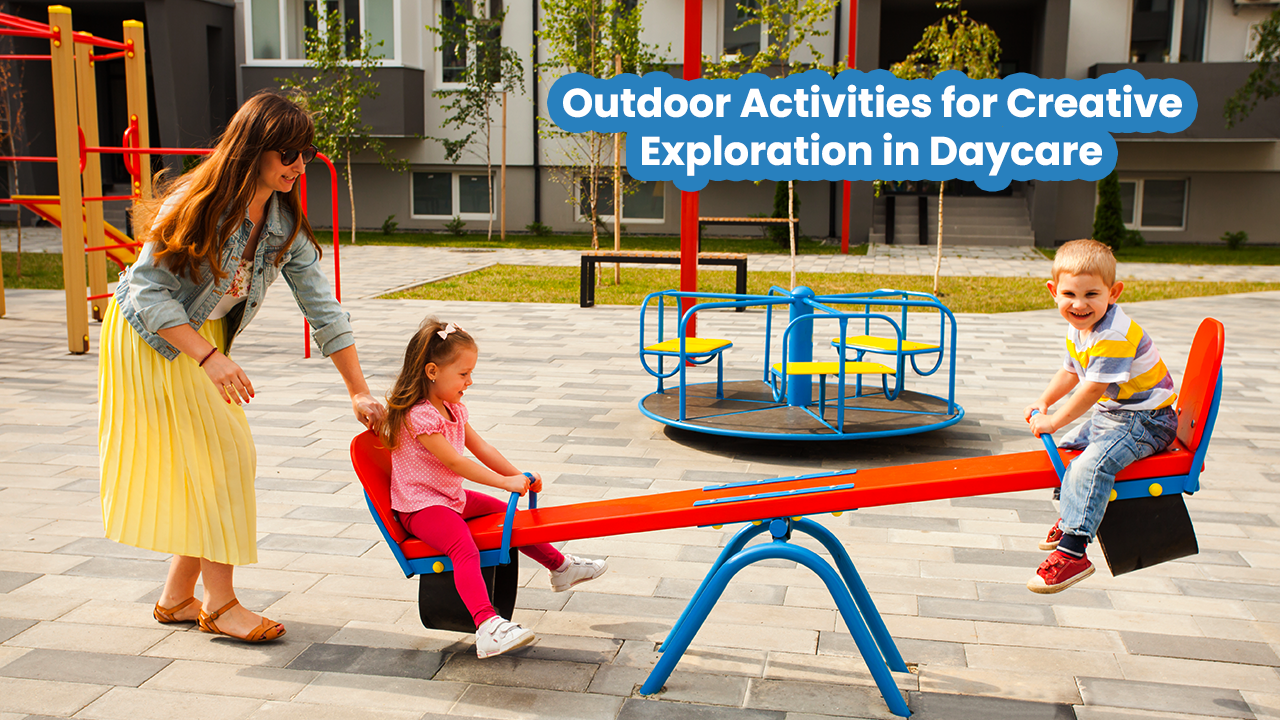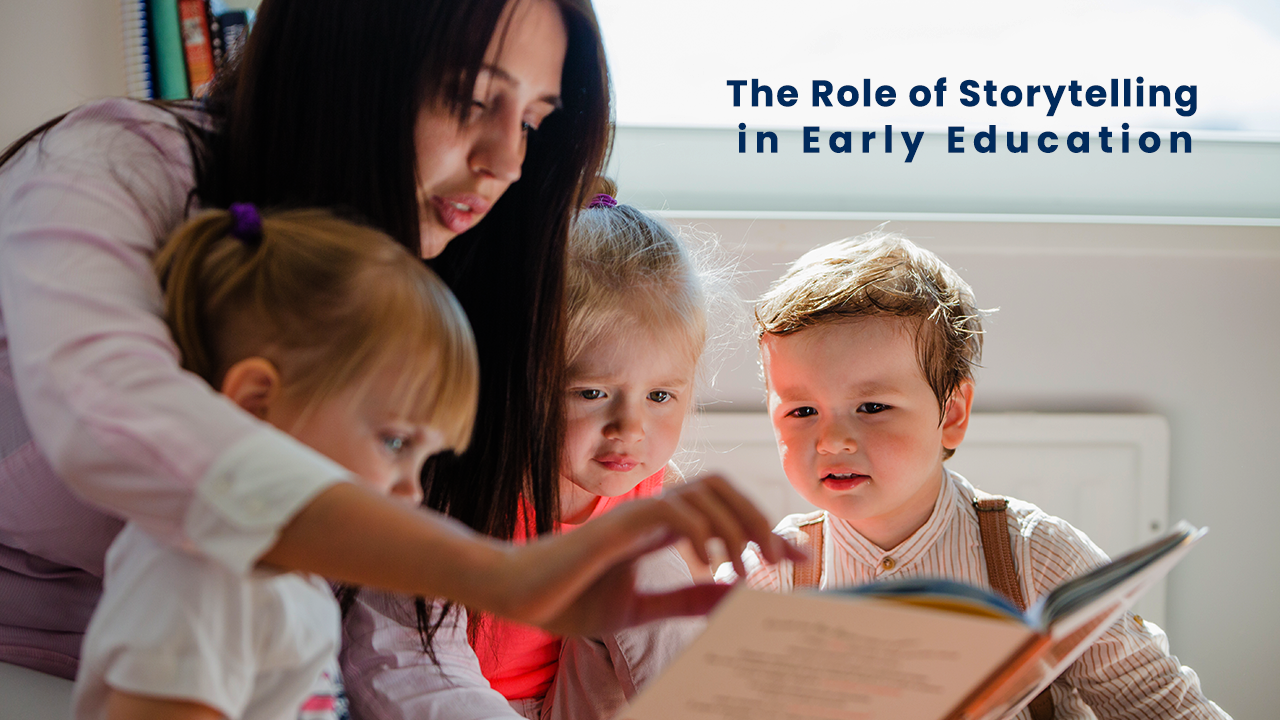
Table of Content
- Introduction
- What is a Curriculum-based Daycare?
- How to implement a curriculum-based Daycare center?
- What are the Benefits of Curriculum-based Daycare?
- How 360Daycare empowers curriculum-based childcare centers?
- Conclusion
Introduction
Choosing the right daycare for your child is an important decision that should be made with special care. Curriculum-based daycare gives children the best start, providing them with essential opportunities to learn and develop. Curriculum-based daycare is one of the most effective ways to give your child the best start. It introduces them to essential educational elements while teaching them the most needed socialization skills, nurturing development, and curiosity. This type of daycare center also helps with language acquisition, motor skill development, cognitive development, emotional intelligence, creative thinking, and more—all of which are essential for a well-rounded childhood. In addition, home care options are available for those who prefer a more personalized approach. With all these benefits, curriculum-based daycare is an excellent choice for giving your child the best start possible.
What is a curriculum-based daycare?
A curriculum-based daycare refers to daycare centers that apply an educational program that focuses on teaching children through a structured curriculum. This preschool provides an engaging, enriching, and developmentally appropriate environment for children to learn. In this preschool setting, teachers and staff guide children through various activities and experiences designed to help them learn and develop academically and socially. The curriculum typically consists of academic skills such as reading, writing, math, and science, as well as other subjects and activities that promote socialization skills such as turn-taking, sharing, and cooperative play. In addition to providing an academic foundation, curriculum-based preschools also focus on fostering creativity, language acquisition, motor skill development, cognitive development, emotional intelligence, and creative thinking. All of these elements combine to provide a comprehensive learning experience for children in a safe and nurturing atmosphere.
How to implement a curriculum-based Daycare center?
Implementing a curriculum-based preschool can be beneficial for both parents and children alike. Planning out a well-rounded, evidence-based curriculum that fosters a love of learning in children is essential. This can include facilitated, playful learning activities as well as academic support. Parents should also ensure that their childcare center has a play-based curriculum in place to foster curiosity and creativity. Furthermore, parents should ensure their preschool provides language acquisition, motor skill development, and cognitive development opportunities to maximize the benefits of curriculum-based daycare. Finally, a preschool program must have emotional intelligence and creative thinking activities so that children can learn the necessary social skills to be resilient to the struggles of school and life.
What are the Benefits of Curriculum-based Daycare?
Curriculum-based daycare centers have become increasingly popular over the past few years as parents seek to provide their children with the best possible education and care. The benefits of this type of daycare center are numerous and can have a lasting impact on a child’s development and future success.
1- Socialization Skills
Socialization skills are a paramount part of any quality childcare curriculum. Children learn to share, take turns, and build relationships through interaction with other children and adults. This helps them develop the confidence and social skills necessary to effectively interact with others in their future academic and professional lives. Quality daycare programs also help kids develop empathy, understanding, and respect for others, all critical components of successful socialization. By providing an environment where kids can develop these skills, daycare programs can set children up for a lifetime of positive relationships.
2- Fostering Curiosity
Fostering curiosity in the educational environment is a crucial part of the daycare. As children explore, they should be supported by meaningful relationships and interactions. The curiosity approach puts the child at the center of their own development and education, allowing them to explore what they are most interested in. This encourages kids to think for themselves and develop creative problem-solving skills. Emerging research has also shown that fostering curiosity in children can lead to higher reading and math scores in kindergarten. In addition to providing lifelong benefits, such as socialization skills and cognitive development, encouraging curiosity can immediately impact academic performance.
3- Academic Progress
A curriculum-based daycare can provide immense benefits for children in terms of academic advancement. Studies have shown that early childhood education programs based on a well-implemented, evidence-based curriculum can lead to long-term academic success. The right daycare setting and individualized instruction can help children develop the skills they need to transition into school and advance academically. Through a combination of playful activities and structured learning, children in a curriculum-based daycare learn academic concepts such as literacy, math, science, and more, which can help them develop a strong foundation for future learning. Additionally, they are also provided with opportunities to practice problem-solving, critical thinking, and other important skills that will help them advance later in life.
4- Language Acquisition
Language acquisition is one of the most important skills a child can develop. With a curriculum-based preschool, they are provided with the opportunity to learn a second language in a safe and supportive environment. Even if the primary language spoken at home is the same as that taught in school, children can still benefit from immersion in a different language. This can help them become more proficient in their native language and improve their mastery of listening, speaking, reading, and writing. In addition, when children learn a second language, they become more open to cultural experiences and better understand different cultures.
5- Motor Skills Development
Motor skill development is an important part of any daycare environment. Smart daycare works on developing a wide array of motor skills through running, jumping, and throwing. These activities help kids develop strong gross motor skills. Participating in sports, climbing, and skipping can foster these skills in a fun and engaging way. Children can increase their coordination and balance through play-based activities while learning important life skills. Physical activities also help with emotional stability, encouraging children to release energy in a safe and positive atmosphere. In addition, having access to various activities such as music, art, or blocks can help children learn how to use their fine motor skills to manipulate objects. These activities help children develop the physical abilities they need for success in the classroom and beyond.
6- Encouraging Cognitive Development
Cognitive development is an important part of early childhood care. Curriculum-based daycare centers provide children with the necessary tools to help them grow mentally. Children can develop problem-solving skills, memory, and concentration through engaging activities and play-based learning. Through STEAM (Science, Technology, Engineering, Art, and Math) activities, language and literacy, and interactive reading, children can gain the skills they need to excel academically. Not to mention that children can unlock their potential for cognitive development with consistent nurturing care and a safe environment that encourages exploration and creativity.
7- Boosting Emotional Intelligence
The benefits of a curriculum-based daycare go far beyond academics. By fostering the development of emotional intelligence, children can better regulate their emotions and manage their relationships, both in and out of the classroom. Research has shown that preschool curriculum programs are highly effective in helping children develop the social and emotional skills they need to flourish. High-quality early childhood programs can also help reinforce these skills through modeling, providing children with a safe space to express their feelings honestly and work through challenging emotions. As such, emotional intelligence is essential in early childhood education and can impact a child’s success in school and beyond.
8- Creative Thinking
Creative thinking is one of the significant benefits of opting for a curriculum-based daycare. Creative thinking encourages children to explore and think outside the box, helping them develop problem-solving skills that will be beneficial later in life. A curriculum-based daycare will also allow children to explore their creative sides in a fun and stimulating environment. It can include painting, drawing, music, and free play time where children can use their imaginations to create stories and characters. By providing these activities, a curriculum-based daycare helps foster creative thinking among children, which can help them develop the skills they need to be successful later on in life.
9- In-Home Care Advantages
In-home care can offer a more affordable option for families looking for quality child care. It can also provide flexibility for parents to adjust their schedules. Home-based childcare enables caregivers to adjust the education and care to meet each child’s individual needs, interests, and routines. This gives children access to a more personalized experience and offers parents peace of mind knowing their children are receiving quality attention and care.
How does 360Daycare software empower curriculum-based daycare centers to do their job seamlessly?
360Daycare software enables curriculum-based childcare centers to manage their day-to-day operations and track each child’s progress. It provides an intuitive user interface, comprehensive reporting tools, and real-time data analysis capabilities. This allows childcare centers to easily monitor their operations and ensure that every child receives the best possible education. The system offers smart learning management solutions that provide all the functionality childcare centers need. This includes course and subject management, performance sheet templates, activity tracking, smart question banks, online sessions, comprehensive lesson plans, and much more. Try it for free
Conclusion
In conclusion, curriculum-based daycare is a great way to prepare your child for the future. It provides a safe and nurturing environment for your children to learn. It also helps them to develop deviant socialization skills, foster curiosity, gain an academic advantage, acquire languages, increase motor skills, and enhance cognitive and emotional intelligence.


